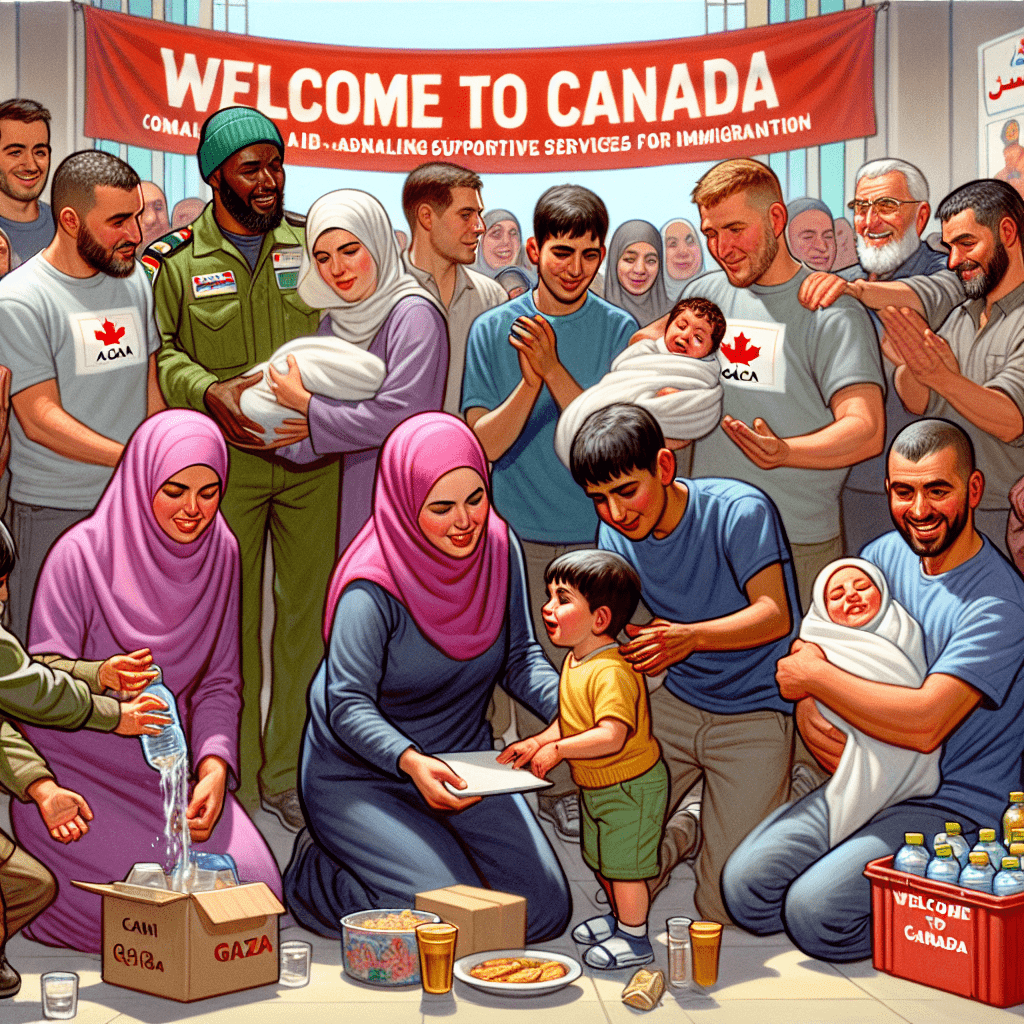Canada Offers Financial Aid to Gazans Seeking Refuge

Canada Steps Up to Support Palestinian Newcomers from Gaza
In a significant humanitarian initiative, Canada is extending vital financial assistance to Palestinians arriving from Gaza, aiming to facilitate their settlement amidst the ongoing crisis. As thousands flee the escalating violence and instability, this program is designed to meet immediate needs such as food, clothing, and housing.
Key Features of the Financial Assistance Program
Transitional Financial Aid: Eligible Palestinians can apply for a one-time financial support package, which includes:
- $3,000 per adult
- $1,500 per child (17 years and younger)
Applicants must complete their applications by March 31, 2025, to qualify for this assistance, which will be distributed in stages through direct deposit, necessitating an account with a Canadian financial institution.
Additional Support Mechanisms
In addition to direct financial aid, Canada is implementing several supportive measures to ease the transition for newcomers:
- Refunds for Application Fees: Temporary resident visa and biometrics fees will be reimbursed under the extended family support measures.
- Settlement Services: Ongoing programs will assist newcomers in securing housing, finding employment, and establishing community connections.
A Broader Commitment to Humanitarian Efforts
As part of its commitment to humanitarian aid, Canada has recently allocated an additional $50 million to assist those affected by the crisis in Gaza and the West Bank, bringing the total international assistance to $215 million. This funding will provide essentials such as food, water, medical supplies, and protection services.
Insights and Analysis
Canada’s proactive stance on providing aid to Palestinians reflects a growing recognition of the humanitarian crisis stemming from the conflict in Gaza. With nearly 4,782 applications already accepted under the temporary resident pathway and 1,014 applicants approved, the initiative not only emphasizes Canada’s commitment to humanitarian values but also sets a precedent for how nations can respond to international crises.
The structured financial aid and additional support services are designed to ensure that newcomers are not only welcomed but are also enabled to rebuild their lives with dignity. This approach illustrates a holistic understanding of refugee integration, focusing on immediate relief while paving the way for long-term stability.
However, as the situation continues to evolve, ongoing monitoring and adaptation of these programs will be crucial. With the pathway for extended family members closing in April 2025 or upon reaching 5,000 applications, timely application is essential for those in need of support.
Conclusion
Canada’s financial assistance program for Palestinians fleeing Gaza stands as a testament to its humanitarian commitment. By providing essential resources and support systems, the country is fostering an environment conducive to stability and integration for its newest residents. As the world watches the developments in the region, Canada’s actions may inspire similar initiatives from other nations, emphasizing the importance of compassion and solidarity in times of crisis.



